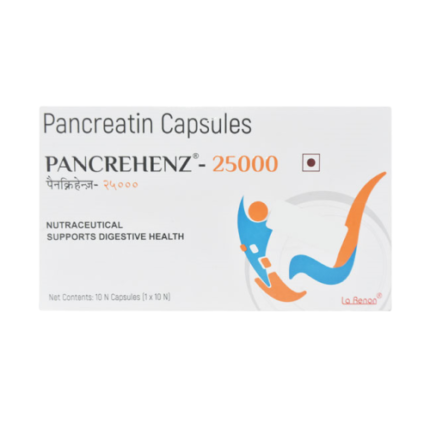Heptral 400MG Tablet contains the active ingredient Ademetionine (S-adenosyl L-methionine). It belongs to the group of medications called hepatoprotective dietary supplements. It helps maintain the metabolism of the body and improves the functioning of the liver. It is mainly indicated to treat intrahepatic cholestasis, depression, osteoarthritis, and cystic fibrosis. Intrahepatic cholestasis is a serious liver disease in pregnancy that causes reduced bile formation.
The symptoms likely associated with Heptral 400MG Tablet include headache, dizziness, diarrhea, constipation, anxiety, nausea, vomiting, stomach upset, insomnia (sleep problems), increased sweating, confusion, dry mouth, dyspepsia, and palpitations. Inform your doctor if any of these symptoms disturb you or persist.
Before taking this medication, inform your physician if you have a history of severe allergic reactions to Heptral 400MG Tablet and its ingredients. Report to your doctor immediately if you have bipolar disorder (manic depression), as it may worsen manic episodes. Do not combine this medication with other antidepressants without consulting your doctor. People taking Heptral 400MG Tablet may need to supplement with a multivitamin that contains folic acid and vitamins B12 and B6. Avoid taking this medicine if you are pregnant or breastfeeding unless prescribed by a doctor. It can be administered to children if recommended by a doctor.
Uses of Heptral 400MG Tablet:
- Treats Intrahepatic cholestasis (a liver disease with low bile formation).
- Treat depression and osteoarthritis (joint disease).
- Reduce symptoms of fibromyalgia (chronic, long-term disorder causing musculoskeletal pain, fatigue, joint pain, and cognitive problems).
How Heptral 400MG Tablet works:
Heptral 400MG Tablet contains a naturally occurring substance found in cells, tissues, and body fluids. It is used to treat depression, osteoarthritis, and liver conditions. In liver disease, this drug regulates liver glutathione levels to prevent liver damage and the accumulation of cirrhosis-related lipids outside the liver. In depression, it influences serotonin levels in the brain, which plays a role in communication between brain cells and mood regulation. In osteoarthritis, it stimulates cartilage production and reduces inflammatory mediators.
Interactions with other drugs:
Notify your doctor about any medications you are currently taking or have taken prior to the commencement of the treatment.
More information:
- Store at a temperature not exceeding 30°C.
Heptral 400MG Tablet should be taken as prescribed by your doctor. Swallow it whole with a glass of water. Refrain from chewing, breaking, or crushing the tablet. For optimal results, take these tablets at the same time daily. Do not cease taking this medication without consulting your doctor.
Safety advice:
Pregnancy:
Heptral 400MG Tablet is not recommended for use during pregnancy, especially in the first trimester. Please consult your doctor for guidance.
Breastfeeding:
Avoid breastfeeding while using Heptral 400MG Tablet, as it may be unsafe during this period. Please consult your doctor for advice.
Liver:
Heptral 400MG Tablet should be used with caution in patients with severe liver disease, and a dose adjustment may be required. Please consult your doctor for appropriate guidance.
] Kidney:
Heptral 400MG Tablet should be used with caution in patients with kidney disease, and a dose adjustment may be required. Please consult your doctor for appropriate guidance.
Alcohol:
Avoid consuming alcohol while using Heptral 400MG Tablet, as it may increase dizziness and harm your liver.
Driving:
Do not drive or operate machinery while using Heptral 400MG Tablet, as it may impair your ability and cause dizziness.
Others:
Inform your doctor before taking Heptral 400MG Tablet if you have:
- Hypersensitivity to Heptral 400MG Tablet and its ingredients.
- Bipolar disorder (manic depression).
- Diabetes and Parkinson’s disease.
- Genetic defects like defects in vitamin B12 metabolism and cystathionine beta-synthase deficiency.
Side effects are undesired symptoms caused by medications. Although all drugs can lead to side effects, not everyone experiences them.
Common:
- Headache
- Dizziness
- Anxiety
- Nausea, vomiting
- Stomach upset, Diarrhea
- Constipation
- Insomnia (sleep problem)
- Increased sweating
- Confusion
- Dry mouth
- Dyspepsia
- Palpitations

 MEDICINES
MEDICINES PATIENT ASSISTANCE PROGRAMS
PATIENT ASSISTANCE PROGRAMS IMPORTED MEDICINES
IMPORTED MEDICINES CONTACT US
CONTACT US Upload
Upload












Reviews
There are no reviews yet.